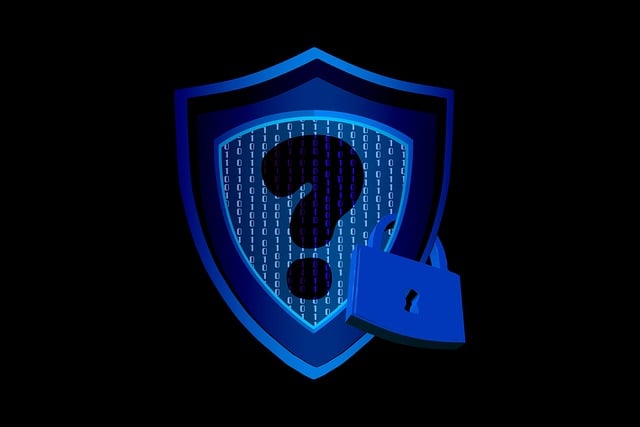Accounting and CPA firms face heightened cybersecurity risks due to their handling of sensitive financial data and increasing digital reliance. To combat ransomware and other threats, they must adopt robust strategies such as multi-factor authentication, regular software updates, employee training, and secure remote access protocols. Proactive measures like these are essential for safeguarding client data, maintaining business continuity, and preventing data breaches in a rapidly evolving digital landscape. By focusing on cybersecurity awareness, continuous learning, and adaptable solutions, CPA firms can effectively prevent ransomware attacks and ensure the integrity of their financial records.
“In today’s digital landscape, accounting and CPA firms face unique cybersecurity challenges. With sensitive financial data at risk, understanding and mitigating threats like ransomware attacks is crucial. This article equips CPAs with a comprehensive guide to fortifying their defenses. From implementing robust defense mechanisms and data protection strategies to training staff and staying updated, we explore actionable steps for ransomware prevention. Discover how to safeguard your firm’s information assets and ensure business continuity.”
- Understanding the Unique Cybersecurity Challenges for CPAs
- The Rise of Ransomware Attacks on Accounting Firms
- Implementing Strong Defense Mechanisms: A Step-by-Step Guide
- Data Protection Strategies for Secure Financial Records
- Training and Education: Empowering Your Team Against Threats
- Staying Ahead: Regular Updates and Adaptable Solutions
Understanding the Unique Cybersecurity Challenges for CPAs

Accounting and CPA firms face distinct cybersecurity challenges due to their unique role in managing sensitive financial information. With the increasing reliance on digital systems for accounting processes, these firms are attractive targets for cybercriminals. One of the primary concerns is ransomware prevention. CPAs must safeguard client data from malicious attacks that can encrypt files, demand hefty ransoms, and disrupt business operations. As remote access to accounting software becomes more common, ensuring robust security measures for remote connections is crucial to prevent unauthorized access and potential data breaches.
Additionally, email encryption should be a priority as communication between CPAs and clients often involves sensitive financial discussions. Protecting this information from interception or manipulation not only maintains client trust but also mitigates the risk of accounting data breaches. By implementing comprehensive security strategies, including multi-factor authentication, regular software updates, and employee training on cybersecurity best practices, CPA firms can fortify their defenses against these evolving threats.
The Rise of Ransomware Attacks on Accounting Firms

In recent years, accounting and CPA firms have become increasingly targeted by cybercriminals, with ransomware prevention becoming a top priority. Ransomware attacks on these organizations have surged due to their significant involvement in handling sensitive financial data, making them attractive targets for malicious actors looking to extort money from businesses. As the digital landscape evolves, so do the tactics of these criminals, posing a growing threat to firms’ operations and clients’ information security.
The impact of a ransomware attack on an accounting firm can be devastating. The encryption of critical accounting data and systems can disrupt business continuity, leading to potential loss of client trust and significant financial consequences. To combat this rising menace, CPA firms must implement robust IT policies that prioritize cybersecurity measures such as regular software updates, employee training on phishing awareness, and the utilization of secure remote access security protocols. Effective ransomware prevention strategies, combined with a well-enforced IT policy implementation, are crucial steps towards safeguarding accounting data breaches and ensuring business resilience in an increasingly digital world.
Implementing Strong Defense Mechanisms: A Step-by-Step Guide

Implementing robust defense mechanisms is essential for accounting and CPA firms to safeguard their sensitive financial data from potential cyber threats, including ransomware attacks. A comprehensive cybersecurity strategy can protect against data breaches, ensuring client confidentiality and maintaining firm integrity. Here’s a step-by-step guide to get started:
1. Conduct a Risk Assessment: Begin by evaluating your firm’s current security posture through a thorough risk assessment. Identify vulnerable points in your network infrastructure, such as outdated software or weak access controls. This step is crucial for understanding potential attack vectors and prioritizing defense mechanisms.
2. Implement Firewalls for CPAs: Set up advanced firewalls to act as the first line of defense against unauthorized access. Configure rules to block suspicious activities and ensure only authorized traffic enters your network. Regularly update firewall rules to adapt to evolving threats, providing a solid foundation for cybersecurity.
3. Encrypt Sensitive Data: Protect accounting data at rest and in transit through encryption techniques. Employ industry-standard encryption algorithms for files, databases, and email communications. This prevents unauthorized access even if data is compromised, significantly reducing the impact of potential breaches.
4. Regular Security Audits: Conduct periodic cybersecurity audits to identify and rectify vulnerabilities. These audits should cover network security, access controls, and employee training. By addressing weaknesses proactively, you minimize the risk of accounting data breaches.
5. Train Employees: Educate your staff about cybersecurity best practices, including recognizing phishing attempts and securing sensitive information. Regular training sessions can foster a culture of awareness, reducing human error-related risks.
6. Backup and Recovery Strategies: Implement robust data backup procedures with off-site or cloud storage options. Ensure quick recovery from ransomware attacks or other data loss incidents by having reliable backups.
Data Protection Strategies for Secure Financial Records

Data protection is paramount for accounting and CPA firms, as they handle sensitive financial records. To safeguard these crucial documents, firms must implement robust strategies that go beyond basic security measures. One significant threat to mitigate is ransomware, a malicious attack that can encrypt data, rendering it inaccessible until a ransom is paid. Preventing ransomware involves regular updates of antivirus software, employee training on identifying phishing attempts, and establishing secure backup protocols to ensure data recovery without yielding to extortionate demands.
Beyond ransomware prevention, comprehensive cybersecurity audits should be conducted periodically to identify vulnerabilities and assess the effectiveness of existing security measures. This process includes reviewing IT policies, network configurations, and user access rights. By integrating these security practices into their operations, accounting firms can maintain the integrity of financial records, protect client data, and uphold the trust that is essential in the CPA industry.
Training and Education: Empowering Your Team Against Threats

At accounting and CPA firms, where sensitive financial information is paramount, training and education are the first lines of defense in cybersecurity. Empowering your team with knowledge about emerging threats like ransomware prevention can significantly mitigate risks. Regular workshops and simulations should be conducted to familiarize staff with best practices, such as identifying phishing attempts, using strong passwords, and implementing multi-factor authentication. These measures not only protect against data breaches but also ensure the integrity of CPA data security.
Encourage a culture of continuous learning by providing resources for ongoing cybersecurity education. This includes staying informed about industry trends, new types of malware, and effective countermeasures like using a Virtual Private Network (VPN) for CPAs to secure remote access. By investing in your team’s understanding of these issues, you create a robust defense against potential accounting data breaches, ensuring the safety and confidentiality of client information.
Staying Ahead: Regular Updates and Adaptable Solutions

In today’s digital landscape, staying ahead of cyber threats is paramount for accounting and CPA firms to protect sensitive client data. One of the most effective strategies is to adopt a proactive approach with regular updates and adaptable security solutions. By continuously updating their cybersecurity measures, firms can stay one step ahead of evolving malicious software like ransomware, which has become a significant concern in the industry. A robust prevention strategy involves implementing a multi-layered defense system, including firewalls and secure VPN connections for remote access, ensuring that both on-premises and cloud-based accounting data remains secure.
Adaptable solutions allow CPA firms to quickly respond to emerging threats. This includes regular security audits, employee training programs, and the adoption of advanced encryption technologies. Additionally, maintaining a culture of cybersecurity awareness among staff is crucial, encouraging them to report suspicious activities or potential breaches promptly. With these measures in place, accounting professionals can mitigate risks and safeguard their clients’ financial information effectively.
